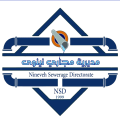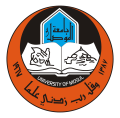MOSUL TIME RADIO
On Friday, An anonymous security source reported that the Anti-Narcotics Directorate had apprehended the top dealer of crystal methamphetamine in Kirkuk governorate.
The source informed that “a specialized team from the Anti-Narcotics Directorate in Kirkuk Governorate, based on intelligence information, managed to arrest the prime suspect in criminal gangs and the sale of illicit drugs, known as (K.Q), caught red-handed in the act.”
The source added that “a well-planned ambush by the Anti-Narcotics Directorate caught the suspect in the act of selling crystal meth in one of the eastern neighborhoods of Kirkuk,” confirming that “the detainee was transferred to a police station, and the seized substances were transferred according to legal procedures by a specialized drug unit.”
Earlier today, the Security Committee of the Basra Council revealed details of the death and injury of two anti-narcotics personnel in a clash with drug traffickers in the governorate.
The committee’s chairman, Aqeel Al-Fraiji, told that “a security operation carried out by the Basra Anti-Narcotics Directorate at dawn today, aimed at apprehending drug dealers and traffickers in possession of crystal meth in the Sangar area in Abu Al-Khasib.”
Al-Fraiji explained, “During the operation, one of the drug traffickers, who was previously sentenced to five years in prison and is currently wanted with an arrest warrant issued against him, opened fire on the anti-narcotics unit, resulting in the death of one member, while another sustained varying injuries.”
He added that “the perpetrator fled to an unknown location, while the anti-narcotics unit continues to gather information in coordination with intelligence and security agencies, and he will not escape punishment,” confirming that “the two traffickers who were with the fugitive criminal have been apprehended.”
Iraq’s drug problem has reached critical levels. According to the United Nations Office on Drugs and Crime (UNODC), the country has become a major transit route for illegal drugs, particularly Captagon, a stimulant amphetamine. This lucrative trade fuels organized crime and terrorist networks, posing a significant threat to regional stability.
Iraq has over 3,637 kilometers of land border with Iran, Jordan, Kuwait, Saudi Arabia, Syria, and Turkiye. Its strategic location means that it is also a conduit for the flow of drugs between Southwest Asia, the Arabian Peninsula, and Europe.
The dramatic increase in methamphetamine trafficking from one side of its border and “captagon” production and trafficking from the other side have consolidated Iraq’s role in the drug trade not just as a bridge between primary producers and consumers but reportedly as a potential emerging source of methamphetamine production and increased consumption in its own right.
In a 2024 report by the UNODC titled: Drug Trafficking Dynamics Across Iraq and the Middle East: Trends and Responses, Iraq and neighboring countries have documented a sharp increase in the trafficking and use of “captagon” over the past five years.
“Captagon seizures have increased by almost 3,380 percent in Iraq from 2019 to 2023. Iraq reported the seizure of over 4.1 tons of captagon tablets between January and December 2023 alone. Seizures of amphetamine (mainly in the form of captagon) in the Near and Middle East doubled in 2020, reaching a record high of 86 tons in 2021. In parallel to Captagon trafficking, a methamphetamine market seems to be developing in the Near and Middle East, as shown by a rise in seizures.” UNODC said.
The UNODC research has found that Iraq is at risk of becoming an increasingly important node in the drug trafficking ecosystem spanning the Near and Middle East.
Iraq lies at the intersection of a complex global drug trafficking ecosystem spanning Southwest Asia, Africa, and Europe, notably the Balkan and Southern routes associated with opiate smuggling from Afghanistan to Europe, through Southeastern Europe, and towards the Indian Ocean and Eastern Africa, including through the Arabian Peninsula.
“Within Iraq, drugs are trafficked along three key internal corridors, including in the north, central, and southern regions of the country.” The report pointed out.
According to the UNODC report, Iraq’s proximity to two major transnational drug trafficking routes spanning the Near and Middle East leaves the country at risk of broader shifts in drug supply.
The first transnational trafficking route is the so-called Balkan route, which has served as the main conduit of Afghan opiates to Europe since the 1970s.
“Tens of billions of dollars’ worth of opiates have been trafficked from Afghanistan and Pakistan through the Islamic Republic of Iran, and in some cases through Iraq, continuing onward to Türkiye and into the West Balkans before being transported to markets in Western Europe.”
“The second trafficking route is the Southern route, with opiates smuggled from Afghanistan southwards through Pakistan and the Islamic Republic of Iran towards the Gulf and Africa.”
The report also mentioned that Iraq experienced a significant increase in drug seizures in recent years.
“Methamphetamine seizures increased almost sixfold in 2023 compared to 2019, while “captagon” seizures reportedly tripled between 2022 and 2023, and overall amounts seized in 2023 are 34 times higher than in 2019. The sharp increase in seizures may reflect both an increased availability of drugs trafficked through the region, as well as enhanced Iraqi and international counter-narcotics and interdiction measures.”
Moreover, reports emerged in 2023 of attempts at “captagon” production in the southern governorate of Iraq, especially in Muthanna.
“There are three principal domestic drug trafficking corridors through which drugs are transhipped within and across Iraq, linked to particular historical and geopolitical developments, as well as related evolution and affiliations of criminal groups. They include the northern, central, and southern internal routes and connect the borders between Iraq and the Islamic Republic of Iran and Türkiye, the Syrian Arab Republic, and Saudi Arabia in particular.”
The Iraqi Government stressed the need for collective responses to tackle the security, social, and economic ramifications of drug trafficking across the Near and Middle East. Practical responses are being implemented, but they are still at an early stage.
Iraq established its first drug law and commission in 2017 and launched a National Strategy on Narcotics and Psychotropic Substances (2023–2025) in 2023. Moreover, Iraq organized the first regional event on the issue in 2023 to accelerate collaboration and coordinate drug detection and disruption efforts.
In December 2023, Iraqi Prime Minister Mohammad Shia al-Sudani made a controversial statement urging the president of the country to ratify all death sentences for convicted drug traffickers.
He said this is necessary to “implement the law and be a deterrent to anyone who dares to threaten the security of the country and its people.”
Between 2019 and 2022, over 43,000 individuals have been apprehended on drug-related charges, and 19,000 in 2023.
Rising drug transshipment through Iraq and neighboring countries has been accompanied by increased domestic consumption across the country.
“The number of people with drug use disorders registered by public health services doubled from 2,979 in 2017 to 6,101 in 2021.” UNODC report said.
Despite the absence of a nationwide survey, some reports indicate a correlation between substance use and communities experiencing higher unemployment rates and economic challenges.
In 2023, Iraq’s national authorities began opening a series of formal drug rehabilitation clinics.






